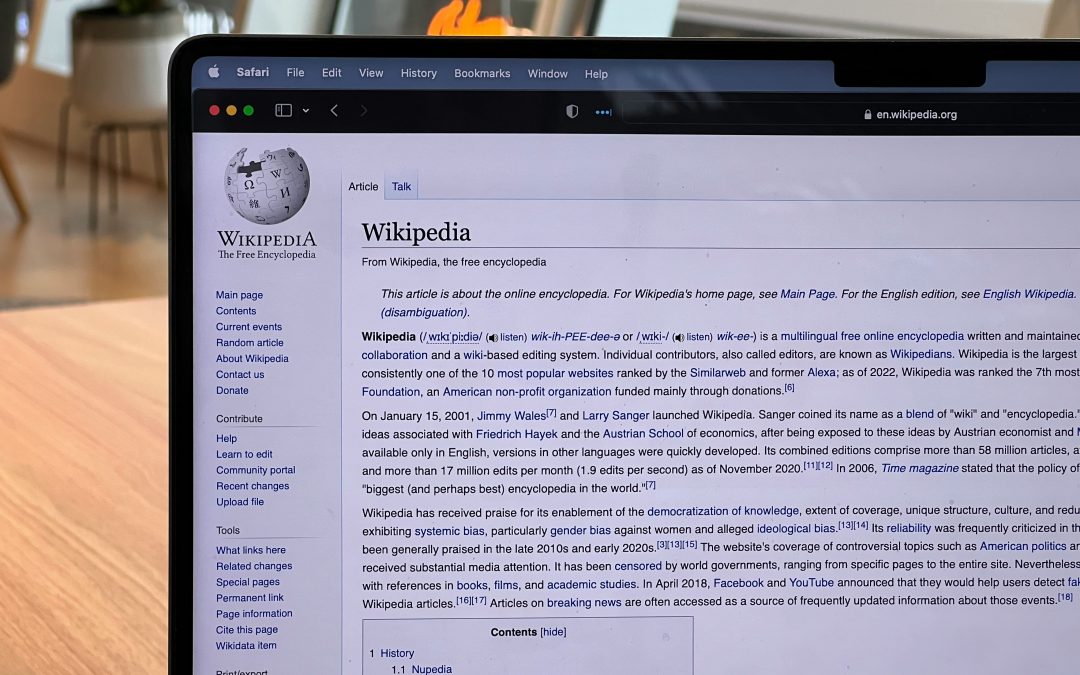The Wikimedia Foundation has revealed a noticeable decline in human pageviews on Wikipedia compared with the same period last year.
According to Marshall Miller, Senior Director of Product, Core Experiences at the Wikimedia Foundation, this drop is likely linked to how people now seek information online, with generative AI tools and social media platforms playing a growing role in answering questions directly.
The organisation noted that human pageviews have fallen by around 8% over the past
What Changed In The Data
The Wikimedia Foundation (WMF) has revealed that it experienced an unusual spike in website traffic around May, which initially appeared to be genuine user activity. However, after further investigation, the organisation discovered that much of this traffic came from sophisticated bots designed to mimic human behaviour and avoid detection.
To address this, Wikimedia updated its bot detection systems and applied these improvements retroactively to data collected between March and August. The refined analysis showed that real human pageviews were actually down by around 8% compared to the same months in 2024.
WMF cautioned that comparing data from different periods must be done carefully, as changes in bot detection methods can affect how traffic is measured and classified. Despite these adjustments, the foundation believes the underlying trend reflects a broader shift in how people consume information.
Marshall Miller, Wikimedia’s Senior Director of Product for Core Experiences, said the rise of generative AI tools and social platforms has fundamentally changed information discovery habits. Many users now rely on search engines and AI-driven systems that directly display answers — often sourced from Wikipedia — without requiring them to visit the site.
This shift has created a paradox: Wikipedia remains one of the internet’s most trusted sources of information, yet users increasingly access its content indirectly through AI tools and search summaries. As a result, while the site continues to shape online knowledge, it is receiving less direct engagement.
Recent research by Profound highlights just how heavily AI depends on Wikipedia’s data. Analysing over 680 million AI citations, the study found that Wikipedia accounts for 47.9% of ChatGPT’s top ten most-cited sources. For Google’s AI Overviews, it represents 5.7% of the top sources, behind Reddit’s 21% and YouTube’s 18.8%.
In addition to this, Wikimedia has reported a 50% increase in bandwidth use by AI bots since January 2024. Many of these automated systems scrape the site’s content to train machine learning and computer vision models.
To better manage this demand, Wikimedia introduced Wikimedia Enterprise in 2021 — a commercial service that provides large-scale users, including AI and search companies, with structured, high-quality data access under service-level agreements.
This trend raises an important question about sustainability. If Wikipedia’s content powers AI-generated answers but fewer users visit the site directly, the incentive model that supports open knowledge creation begins to break down. The current system assumes that publishers benefit from the exposure AI brings, but the reality shows declining referral traffic even as dependence on their content grows.
For content creators and publishers, the lesson is clear: being frequently cited by AI systems doesn’t necessarily translate to meaningful engagement or support for the platforms that produce that information.
Looking ahead, Wikimedia has committed to continuing improvements to its bot detection systems and closely tracking how AI and social media affect access to information.
While direct visits may be declining, Wikipedia remains an essential foundation for digital knowledge — powering countless AI systems and search tools that millions rely on daily. For other publishers, similar trends may soon become the norm as generative AI increasingly reshapes how audiences consume information online.
More Digital Marketing BLOGS here:
Local SEO 2024 – How To Get More Local Business Calls
3 Strategies To Grow Your Business
Is Google Effective for Lead Generation?
How To Get More Customers On Facebook Without Spending Money
How Do I Get Clients Fast On Facebook?
How Do You Use Retargeting In Marketing?
How To Get Clients From Facebook Groups
